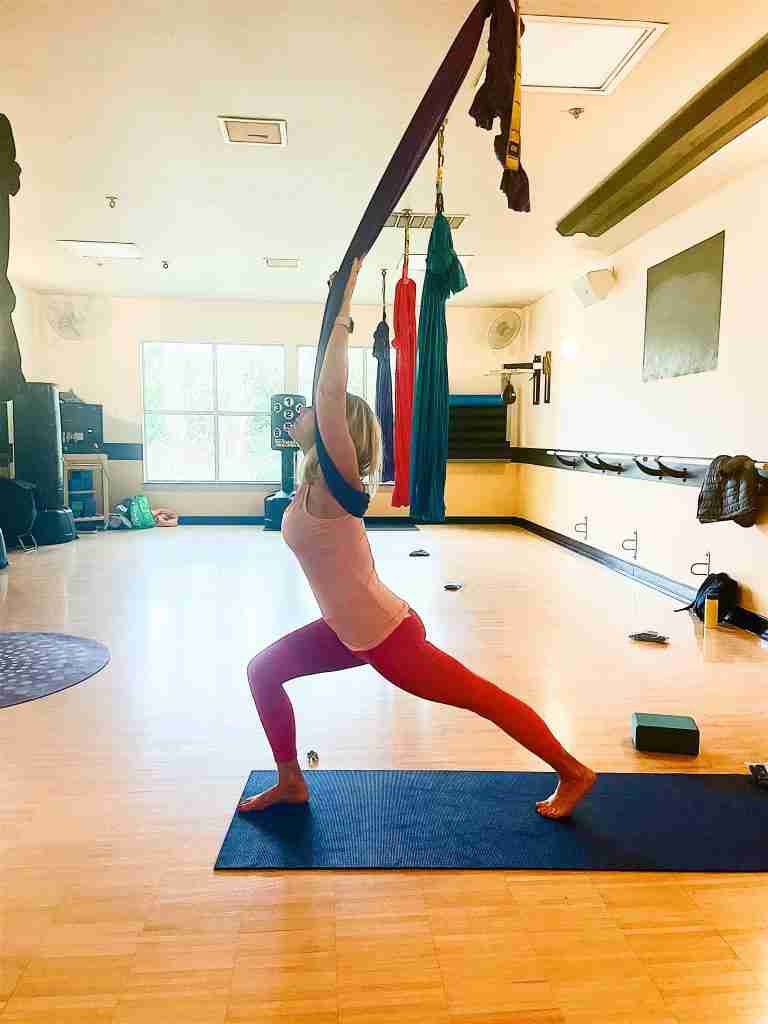5 Practical Tips to Improve Your Emotional Well-being
In today’s fast-paced world, it’s easy to get caught up in the hustle and bustle of daily life, often neglecting our emotional well-being in the process. In this post I am sharing 5 tips to improve your emotional well-being. These are health wellness habits we should all practice.
Improving my well-being is crucial because it directly impacts every aspect of my life, shaping my experiences, relationships, and overall satisfaction. Taking care of our mental and emotional health is essential for leading a fulfilling life.
Think of it this way. Being in a good state of emotional well-being is like having a sturdy lifeboat in the stormy seas of adversity. When hard things happen. For instance, I had two flat tires within one week. It was extremely frustrating but I had to find a why to find humor in it all.
Bottom line, maintaining emotional well-being provides us with the resilience and clarity needed to navigate these challenges with grace and strength
I have to constantly remind myself to take time for meditation, prayer and exercise. These simple everyday activities have changed my world.
Here are five practical tips to help you improve your emotional well-being:

1. Practice Mindfulness and Meditation:
The first of five practical tips to improve your emotional well-being is mindfulness and meditation. We have all heard that meditation and mindfulness are good for our health. This is because these healthy habits reduce stress, improve focus and attention, promote emotional regulation, enhance self-awareness, and foster a sense of calm and well-being.
These practices (daily habits) have been linked to numerous physical and mental health benefits, including lower blood pressure, reduced symptoms of anxiety and depression, better sleep quality, and increased resilience to challenges. Overall, mindfulness and meditation provide powerful tools for cultivating a healthier mind and body.
Incorporating meditation into your daily routine can work wonders for your emotional well-being.
Here are the examples of daily meditation and mindfulness habits:
- Morning Meditation Ritual: Start day with quiet meditation, focusing on breath or mantra for clarity.
- Mindful Eating: Savor each bite, focus on flavors, textures, and smells for healthier eating habits.
- Nature Walks: Immerse in nature, notice sights, sounds, and sensations for grounding and rejuvenation.
- Body Scan Meditation: Relax before bed with body scan meditation, release tension for better sleep.
- Mindful Breathing in Stressful Situations: Pause, focus on breath during stress, regain composure and clarity.
- Gratitude Meditation: Reflect on daily gratitude before sleep, shift focus to positivity and abundance.
- Spend time with your Pet: Pets bring joy and calm to our lives.
- Create a mindful home: Clean clutter-free home is a mindful home.
These practices help you stay present in the moment, reduce stress, and promote relaxation. Set aside a few minutes each day to sit quietly, focus on your breath, and let go of any worries or negative thoughts. Over time, you’ll notice an improvement in your mood and overall outlook on life.

2. Cultivate Gratitude:
There is not doubt that gratitude is a powerful tool for enhancing emotional well-being. In my personal opinion it’s a top way to improve your emotional well-being. Take time each day to reflect on the things you’re grateful for, whether it’s a supportive friend, a beautiful sunset, or a warm cup of tea.
Research shows that our thoughts have the power to shape our brains. Yes, this is good news because we can rewire our minds to have more gratitude. This gratitude creates contentment.
Best selling author, Rick Hanson explains that negative experiences are like “Velcro” and tend to stick in our minds, whereas positive experiences are like “Teflon” and more readily slip away.
Fortunately, we have the power to focus on positive interactions that will help to mold our brains that will result in happiness and good health. One critical step is practicing gratitude.
Keeping a gratitude journal can help you cultivate a positive mindset and shift your focus away from negativity. By acknowledging the good things in your life, you’ll feel happier, more content, and better equipped to handle life’s challenges.
3. Prioritize Self-care:
Self-care is an essential to improve your emotional well-being. It’s essential for maintaining good emotional health. Make self-care a priority by carving out time in your schedule for activities that nourish your mind, body, and soul.
Whether it’s taking a relaxing bath, going for a walk in nature, or indulging in your favorite hobby, make time for activities that bring you joy and relaxation. Remember, taking care of yourself isn’t selfish—it’s necessary for your overall well-being.
Here is what I do to prioritize self-care:
- Reading for Pleasure: Setting aside time each day to read a book that I enjoy, allowing myself to escape into different worlds and explore new ideas.
- Regular Exercise: Prioritizing physical activity that I love, such as going for a run in the park or practicing yoga, to boost my mood and energy levels.
- Journaling: Writing in a journal to express my thoughts, feelings, and experiences, providing a healthy outlet for processing emotions and gaining clarity.
- Creative Outlets: Engaging in creative hobbies like painting, playing an instrument, or crafting, to unwind and tap into my creative side.
- Digital Detox: Taking breaks from screens and social media, disconnecting to recharge and focus on real-life interactions and activities.
- Spending Time in Nature: Going for walks or picnics in nature, appreciating the beauty of the outdoors and grounding myself in the present moment.
- Setting Boundaries: Saying no to activities or commitments that drain my energy or cause unnecessary stress, prioritizing my own needs and well-being.
- Quality Sleep: Prioritizing restful sleep by maintaining a consistent sleep schedule, creating a calming bedtime routine, and ensuring a comfortable sleep environment.

4. Connect with Others:
Human connection is vital for emotional well-being. Make an effort to nurture your relationships with friends, family, and loved ones.
Reach out to someone you trust when you’re feeling down or overwhelmed, and don’t hesitate to ask for support when you need it.
Spending quality time with others, whether it’s through face-to-face conversations or virtual hangouts, can provide comfort, companionship, and a sense of belonging.
You know I have to suggest ways to spend time with your Gal Pals. Right? The following are the some of the most popular reasons why to connect with your besties for your own emotional well-being.
- Supportive Network: Gal pals offer a supportive network where you can share thoughts, feelings, and struggles without judgment.
- Validation and Empathy: They provide validation and empathy, reducing feelings of loneliness and isolation.
- Stress Relief: Spending time with gal pals offers stress relief through laughter, venting, and companionship.
- Positive Influence: They encourage healthy habits, support personal growth, and inspire you to be your best self.
- Perspective and Advice: Gal pals offer valuable perspective and advice, helping navigate challenges and decisions.
- Celebrating Milestones: They celebrate successes and milestones with genuine joy, enhancing feelings of accomplishment.
- Deepening Relationships: Nurturing relationships with gal pals strengthens bonds and contributes to overall happiness and fulfillment.
5. Seek Professional Help When Needed:
If you’re struggling to manage your emotions or experiencing persistent feelings of sadness, anxiety, or stress, don’t hesitate to seek professional help.
A therapist or counselor can provide you with the support, guidance, and coping strategies you need to improve your emotional well-being. Remember, it’s okay to ask for help, and seeking therapy is a proactive step towards taking care of yourself.
In conclusion, improving your emotional well-being requires conscious effort and self-awareness. By practicing mindfulness, cultivating gratitude, prioritizing self-care, connecting with others, and seeking professional help when needed, you can nurture your emotional health and lead a happier, more fulfilling life. Start implementing these tips into your daily routine today, and watch as your emotional well-being flourishes.
Most Frequently Asked Questions about Emotional Well-Being
Q: How can I manage stress and anxiety effectively in my daily life?
A: Managing stress and anxiety involves techniques such as deep breathing exercises, progressive muscle relaxation, setting realistic goals, prioritizing tasks, and seeking social support when needed. It’s also important to establish healthy boundaries and engage in activities that bring joy and relaxation.
Q: What role does physical activity play in enhancing emotional well-being?
A: Regular physical activity releases endorphins, which are natural mood lifters. Exercise also reduces the levels of stress hormones in the body, improves sleep quality, and boosts self-esteem, all of which contribute to better emotional well-being.
Q: Are there specific dietary changes I can make to support my emotional health?
A: Yes, maintaining a balanced diet rich in fruits, vegetables, whole grains, lean proteins, and healthy fats can positively impact your emotional well-being. Avoiding excessive caffeine, sugar, and alcohol, which can exacerbate mood swings and anxiety, is also recommended.
Q: How can I cultivate mindfulness and presence to improve my emotional well-being?
A: Practices such as mindfulness meditation, yoga, and tai chi can help cultivate mindfulness and presence. These practices encourage you to focus on the present moment, reduce rumination on past events or worries about the future, and foster a greater sense of calm and clarity.
Q: What strategies can I use to cope with negative emotions such as sadness or anger?
A: Coping strategies for negative emotions include deep breathing exercises, practicing self-compassion, engaging in activities you enjoy, seeking support from friends or a therapist, reframing negative thoughts, and finding healthy outlets for expressing emotions such as journaling or creative expression.
Q: How important is social support for maintaining good emotional health?
A: Social support plays a crucial role in emotional well-being. Having a strong support network of friends, family, or a community can provide validation, empathy, and practical assistance during difficult times. It’s essential to nurture these relationships and seek support when needed.
Q: Are there any techniques or exercises I can use to enhance self-awareness and self-compassion?
A: Yes, practices such as mindfulness meditation, journaling, and self-reflection exercises can enhance self-awareness. Cultivating self-compassion involves treating yourself with kindness and understanding, acknowledging your own suffering without judgment, and practicing self-care activities that nurture your well-being.
Q: How can I establish healthy boundaries to protect my emotional well-being?
A: Setting clear boundaries involves identifying your needs, communicating them assertively, and enforcing them consistently. This may involve saying no to requests that drain your energy, prioritizing self-care, and surrounding yourself with people who respect your boundaries.
Q: What resources or professional support options are available for those struggling with their emotional health?
A: There are various resources available, including therapy, support groups, hotlines, online forums, self-help books, and mental health apps. Seeking help from a licensed therapist or counselor can provide personalized support and guidance tailored to your specific needs and challenges.
Disclosure: Our blog content is intended for informational purposes only and does not constitute medical advice. While we strive to provide accurate and up-to-date information, the content on our blog should not be used as a substitute for professional medical advice, diagnosis, or treatment.
Always seek the advice of your physician or other qualified health provider with any questions you may have regarding a medical condition. Never disregard professional medical advice or delay in seeking it because of something you have read on this blog. Reliance on any information provided by this blog is solely at your own risk. We do not endorse or recommend any specific products, treatments, or procedures mentioned on the blog.







